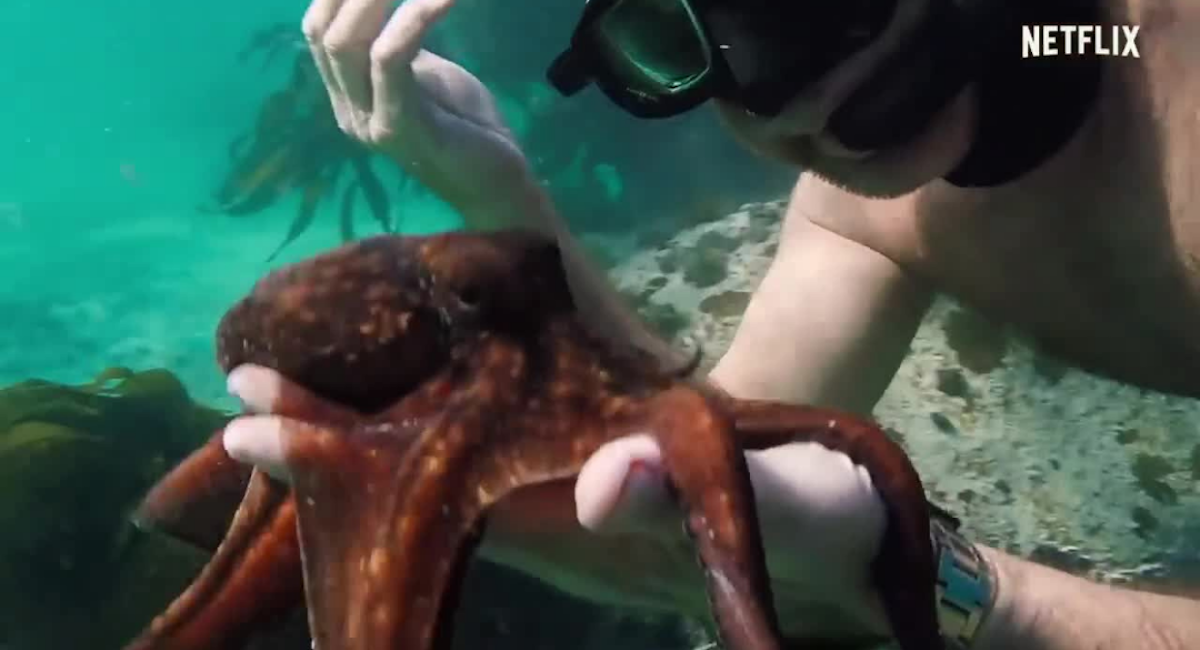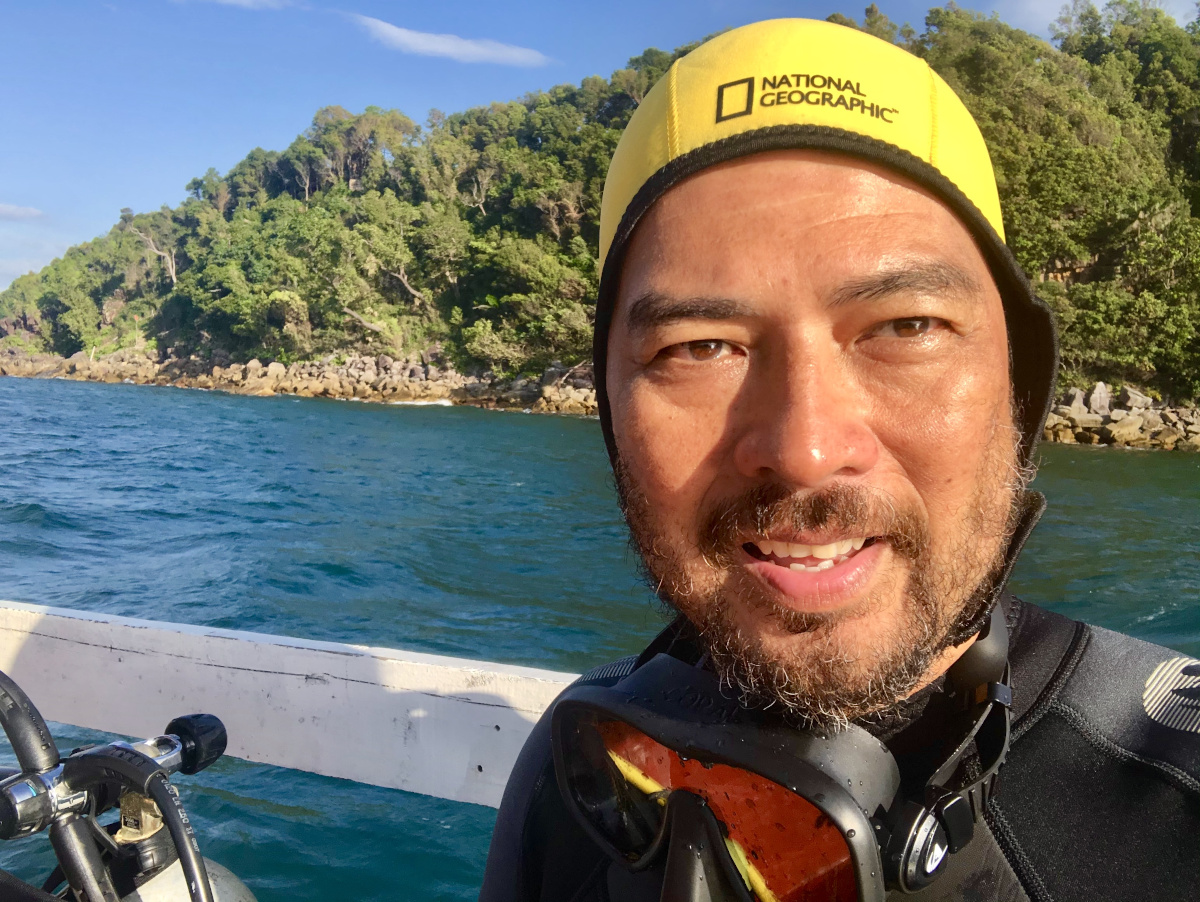
An octopus is the unlikely star of the recent Netflix documentary, My Octopus Teacher. The film, which has become a viral hit and won awards, including the Academy Award for Best Documentary Feature, shows the unusual bond that forms between filmmaker Craig Foster and an octopus he meets while freediving in the cold underwater kelp forest in False Bay, near Simon’s Town in Cape Town, South Africa. Foster returns to visit the octopus every day becoming a privileged witness to how her life unfolds underwater. In the process a friendship is born and his own life is transformed.
“The film is really about our relationship with nature and the pressing need for ecological protection and conservation,” reflects Fr Gabby Lamug-Nañawa SJ, Reconciliation with Creation Coordinator for the Jesuit Conference of Asia Pacific.
He notes the last chapter of Laudato si’, where Pope Francis explicitly calls us to ecological conversion. “It appears, however, that there can be different starting points for this process,” he says. “What ‘My Octopus Teacher’ shows is that we can also begin not with a problem but with an encounter.”
So on the occasion of Laudato si’ Week from 16 to 25 May, Fr Lamug-Nañawa offers eight ideas that can be used as a framework for how ecological conversion can look like in our own life as inspired by the film.
- Enter the wild
We have different reasons for why we are attracted to nature. What matters is that we enter into that world, instead of bringing a piece of it back into ours, like how we collect sea shells or keep wild animals caged in a zoo. This first stage asks us to initiate stepping out of our comfort zones, and to risk entering something new and unfamiliar, in search of making a connection with a fellow creature. Through years of industrialization and so-called development, we have lost our connection with the rest of nature and also with our true selves, something indigenous peoples know less about.
- Be open for a connection
The conditions for swimming and freediving in the waters of False Bay were not the most welcoming. But Craig braved big waves, strong currents, and waters as cold as 8°C without wearing a wetsuit. He remembers the curiosity and fascination he felt the first time he saw the octopus. When you enter an unfamiliar world, allow yourself to be taken in, to be amazed by beauty, to be filled with child-like wonder. Finding a connection is a gift, a grace that we cannot engineer. But if our hearts are open, we can more easily be surprised.
- Keep coming back, nurture the friendship
With each passing day, the octopus became less and less afraid of Craig, finally stretching out an arm to meet his hand. If you have a favourite place in nature, keep going back to it, immerse yourself and increase your familiarity, allow yourself to be drawn in by its beauty and relish her gifts. Slowly, you will begin to notice details and subtleties, and the place will open up to you. Nature’s time scales are generally slower than our expectations. If we quit on our attentiveness too quickly, we might miss out on the opportunity for a deeper connection.
- Welcome love
Craig and the octopus were in a loving relationship, something he described as “no greater feeling on Earth”. Love is needed to cause a paradigm shift, to see nature not as object to be taken, used, and thrown away, but as subject, having its own intrinsic value, its own rights, deserving of our respect and affection. We can take the cue from indigenous peoples who see themselves as intricately part of the larger body of nature, regarding the Earth and other major systems like rivers and mountains, as their mother, sister, or brother.

- Educate yourself
When we love a fellow being, we seek to know them even further. Craig researched and read numerous articles about the octopus, which formed the backdrop for their daily interaction. He was blessed to have witnessed the last stages of the octopus’ life cycle, when she mated, retreated into her den, never to come out again, giving all her strength to her eggs, and timing her death with their hatching. Although obviously saddened by her death, Craig felt very privileged and thankful to have accompanied the octopus through most of her life.
When we are drawn to something beautiful, we also feel the appetite to know more about it. Love drives us to know more, which in turn deepens our love even more.
- Practice gratitude and reciprocity
After grieving the death of the octopus, Craig noticed a welling-up of gratitude in his heart, for the sharing of life that he experienced. There was a natural flow of goodwill and love for other creatures, other beings, with an undeniable feeling that he had so much energy to give back.
As in any authentic relationship, both parties receive and give. As we establish a connection and love develops, we become aware of the richness of what we are receiving. And if a loving relationship truly exists, we are naturally moved to give back, freely, generously, without agenda or expectation. This is reciprocity, giving to nature not as an investment because we want to take more at a later time, but simply as an expression of our gratitude and love.
- Move from creature to creation
“I fell in love with her, but also with that amazing wildness that she represents,” Craig says towards the end of the film. Here there is a change from gratitude for a singular species to the larger system of relations, to the whole of creation, and that we are part of this grand community of beings. Being authentically connected with one particular creature catapults us towards a sense of affinity and kinship with the rest of creation.
- Share with the young
It is very important to expose children and the young to nature, cultivating curiosity, wonder, and engagement. It is these foundational and joyful experiences that they will remember and refer back to as adults. This has profound implications on how we educate our children and students. The leaders we want tomorrow are the children of today who approach nature with gentleness and humility, and who see themselves as part of nature’s intricate community.
Fr Lamug-Nañawa iterates the two crucial transition points in this framework for ecological conversion. The first is the shift from treating nature as object to subject. “This starts with a personal encounter centered on the heart for it is only with love that we can respond with humility and respect,” he says. The second is “to move from an I/thou relationship to one of community, realising and behaving that we are all Adam (adamah), having come from the earth, bearing countless strings of relations that bind us to every corner of creation.”

